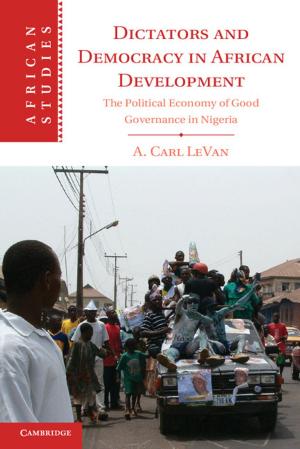Fracture Mechanics
Integration of Mechanics, Materials Science and Chemistry
Nonfiction, Science & Nature, Science, Physics, Mechanics, Technology, Engineering, Mechanical| Author: | Robert P. Wei | ISBN: | 9780511739378 |
| Publisher: | Cambridge University Press | Publication: | February 8, 2010 |
| Imprint: | Cambridge University Press | Language: | English |
| Author: | Robert P. Wei |
| ISBN: | 9780511739378 |
| Publisher: | Cambridge University Press |
| Publication: | February 8, 2010 |
| Imprint: | Cambridge University Press |
| Language: | English |
Fracture and 'slow' crack growth reflect the response of a material (i.e. its microstructure) to the conjoint actions of mechanical and chemical driving forces and are affected by temperature. There is therefore a need for quantitative understanding and modeling of the influences of chemical and thermal environments and of microstructure, in terms of the key internal and external variables, and for their incorporation into design and probabilistic implications. This text, which the author has used in a fracture mechanics course for advanced undergraduate and graduate students, is based on the work of the author's Lehigh University team whose integrative research combined fracture mechanics, surface and electrochemistry, materials science, and probability and statistics to address a range of fracture safety and durability issues on aluminum, ferrous, nickel, and titanium alloys and ceramics. Examples are included to highlight the approach and applicability of the findings in practical durability and reliability problems.
Fracture and 'slow' crack growth reflect the response of a material (i.e. its microstructure) to the conjoint actions of mechanical and chemical driving forces and are affected by temperature. There is therefore a need for quantitative understanding and modeling of the influences of chemical and thermal environments and of microstructure, in terms of the key internal and external variables, and for their incorporation into design and probabilistic implications. This text, which the author has used in a fracture mechanics course for advanced undergraduate and graduate students, is based on the work of the author's Lehigh University team whose integrative research combined fracture mechanics, surface and electrochemistry, materials science, and probability and statistics to address a range of fracture safety and durability issues on aluminum, ferrous, nickel, and titanium alloys and ceramics. Examples are included to highlight the approach and applicability of the findings in practical durability and reliability problems.















